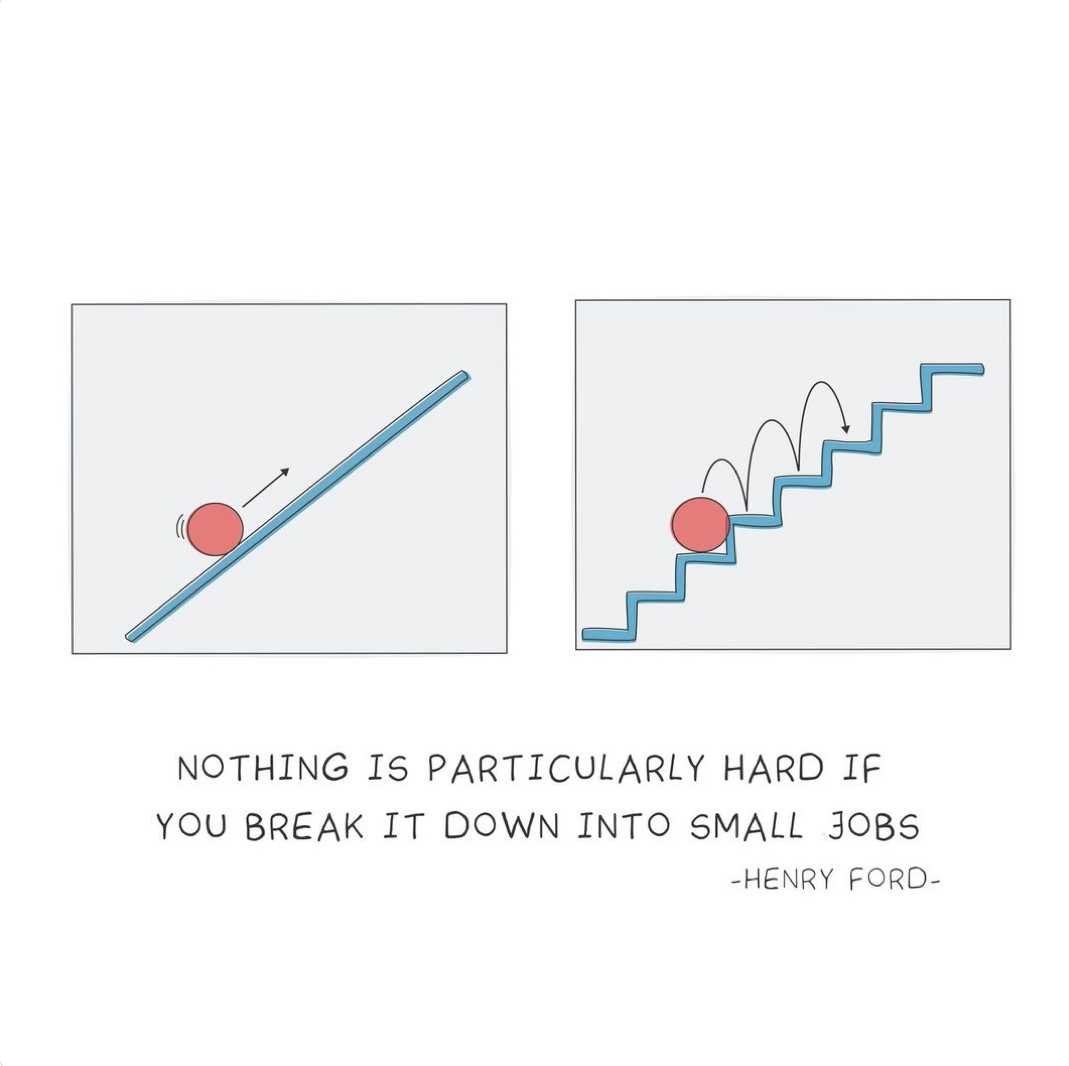לְגַלוֹת פוסטיםחקור תוכן שובה לב ונקודות מבט מגוונות בדף Discover שלנו. חשוף רעיונות טריים והשתתף בשיחות משמעותיות
Morning and Evening by Charles Spurgeon
Morning
"There is laid up for me a crown of righteousness." 2 Timothy 4:8
Doubting one! thou hast often said, "I fear I shall never enter heaven." Fear not! all the people of God shall enter there. I love the quaint saying of a dying man, who exclaimed, "I have no fear of going home; I have sent all before me; God's finger is on the latch of my door, and I am ready for him to enter." "But," said one, "are you not afraid lest you should miss your inheritance?" "Nay," said he, "nay; there is one crown in heaven which the angel Gabriel could not wear, it will fit no head but mine. There is one throne in heaven which Paul the apostle could not fill; it was made for me, and I shall have it." O Christian, what a joyous thought! thy portion is secure; "there remaineth a rest." "But cannot I forfeit it?" No, it is entailed. If I be a child of God I shall not lose it. It is mine as securely as if I were there. Come with me, believer, and let us sit upon the top of Nebo, and view the goodly land, even Canaan. Seest thou that little river of death glistening in the sunlight, and across it dost thou see the pinnacles of the eternal city? Dost thou mark the pleasant country, and all its joyous inhabitants? Know, then, that if thou couldst fly across thou wouldst see written upon one of its many mansions, "This remaineth for such a one; preserved for him only. He shall be caught up to dwell forever with God." Poor doubting one, see the fair inheritance; it is thine. If thou believest in the Lord Jesus, if thou hast repented of sin, if thou hast been renewed in heart, thou art one of the Lord's people, and there is a place reserved for thee, a crown laid up for thee, a harp specially provided for thee. No one else shall have thy portion, it is reserved in heaven for thee, and thou shalt have it ere long, for there shall be no vacant thrones in glory when all the chosen are gathered in.
Evening
"In my flesh shall I see God." Job 19:26
Mark the subject of Job's devout anticipation "I shall see God." He does not say, "I shall see the saints"--though doubtless that will be untold felicity--but, "I shall see God." It is not--"I shall see the pearly gates, I shall behold the walls of jasper, I shall gaze upon the crowns of gold," but "I shall see God." This is the sum and substance of heaven, this is the joyful hope of all believers. It is their delight to see him now in the ordinances by faith. They love to behold him in communion and in prayer; but there in heaven they shall have an open and unclouded vision, and thus seeing "him as he is," shall be made completely like him. Likeness to God--what can we wish for more? And a sight of God--what can we desire better? Some read the passage, "Yet, I shall see God in my flesh," and find here an allusion to Christ, as the "Word made flesh," and that glorious beholding of him which shall be the splendour of the latter days. Whether so or not it is certain that Christ shall be the object of our eternal vision; nor shall we ever want any joy beyond that of seeing him. Think not that this will be a narrow sphere for the mind to dwell in. It is but one source of delight, but that source is infinite. All his attributes shall be subjects for contemplation, and as he is infinite under each aspect, there is no fear of exhaustion. His works, his gifts, his love to us, and his glory in all his purposes, and in all his actions, these shall make a theme which will be ever new. The patriarch looked forward to this sight of God as a personal enjoyment. "Whom mine eye shall behold, and not another." Take realizing views of heaven's bliss; think what it will be to you. "Thine eyes shall see the King in his beauty." All earthly brightness fades and darkens as we gaze upon it, but here is a brightness which can never dim, a glory which can never fade--"I shall see God."
Morning and Evening by Charles Spurgeon
Morning
"I will be their God." Jeremiah 31:33
Christian! here is all thou canst require. To make thee happy thou wantest something that shall satisfy thee; and is not this enough? If thou canst pour this promise into thy cup, wilt thou not say, with David, "My cup runneth over; I have more than heart can wish"? When this is fulfilled, "I am thy God", art thou not possessor of all things? Desire is insatiable as death, but he who filleth all in all can fill it. The capacity of our wishes who can measure? But the immeasurable wealth of God can more than overflow it. I ask thee if thou art not complete when God is thine? Dost thou want anything but God? Is not his all-sufficiency enough to satisfy thee if all else should fail? But thou wantest more than quiet satisfaction; thou desirest rapturous delight. Come, soul, here is music fit for heaven in this thy portion, for God is the Maker of Heaven. Not all the music blown from sweet instruments, or drawn from living strings, can yield such melody as this sweet promise, "I will be their God." Here is a deep sea of bliss, a shoreless ocean of delight; come, bathe thy spirit in it; swim an age, and thou shalt find no shore; dive throughout eternity, and thou shalt find no bottom. "I will be their God." If this do not make thine eyes sparkle, and thy heart beat high with bliss, then assuredly thy soul is not in a healthy state. But thou wantest more than present delights--thou cravest something concerning which thou mayest exercise hope; and what more canst thou hope for than the fulfilment of this great promise, "I will be their God"? This is the masterpiece of all the promises; its enjoyment makes a heaven below, and will make a heaven above. Dwell in the light of thy Lord, and let thy soul be always ravished with his love. Get out the marrow and fatness which this portion yields thee. Live up to thy privileges, and rejoice with unspeakable joy.
Evening
"Serve the Lord with gladness." Psalm 100:2
Delight in divine service is a token of acceptance. Those who serve God with a sad countenance, because they do what is unpleasant to them, are not serving him at all; they bring the form of homage, but the life is absent. Our God requires no slaves to grace his throne; he is the Lord of the empire of love, and would have his servants dressed in the livery of joy. The angels of God serve him with songs, not with groans; a murmur or a sigh would be a mutiny in their ranks. That obedience which is not voluntary is disobedience, for the Lord looketh at the heart, and if he seeth that we serve him from force, and not because we love him, he will reject our offering. Service coupled with cheerfulness is heart-service, and therefore true. Take away joyful willingness from the Christian, and you have removed the test of his sincerity. If a man be driven to battle, he is no patriot; but he who marches into the fray with flashing eye and beaming face, singing, "It is sweet for one's country to die," proves himself to be sincere in his patriotism. Cheerfulness is the support of our strength; in the joy of the Lord are we strong. It acts as the remover of difficulties. It is to our service what oil is to the wheels of a railway carriage. Without oil the axle soon grows hot, and accidents occur; and if there be not a holy cheerfulness to oil our wheels, our spirits will be clogged with weariness. The man who is cheerful in his service of God, proves that obedience is his element; he can sing,
"Make me to walk in thy commands,
'Tis a delightful road."
Reader, let us put this question--do you serve the Lord with gladness? Let us show to the people of the world, who think our religion to be slavery, that it is to us a delight and a joy! Let our gladness proclaim that we serve a good Master.
Morning and Evening by Charles Spurgeon
Morning
"The iniquity of the holy things." Exodus 28:38
What a veil is lifted up by these words, and what a disclosure is made! It will be humbling and profitable for us to pause awhile and see this sad sight. The iniquities of our public worship, its hypocrisy, formality, lukewarmness, irreverence, wandering of heart and forgetfulness of God, what a full measure have we there! Our work for the Lord, its emulation, selfishness, carelessness, slackness, unbelief, what a mass of defilement is there! Our private devotions, their laxity, coldness, neglect, sleepiness, and vanity, what a mountain of dead earth is there! If we looked more carefully we should find this iniquity to be far greater than appears at first sight. Dr. Payson, writing to his brother, says, "My parish, as well as my heart, very much resembles the garden of the sluggard; and what is worse, I find that very many of my desires for the melioration of both, proceed either from pride or vanity or indolence. I look at the weeds which overspread my garden, and breathe out an earnest wish that they were eradicated. But why? What prompts the wish? It may be that I may walk out and say to myself, In what fine order is my garden kept!' This is pride. Or, it may be that my neighbours may look over the wall and say, How finely your garden flourishes!' This is vanity. Or I may wish for the destruction of the weeds, because I am weary of pulling them up. This is indolence." So that even our desires after holiness may be polluted by ill motives. Under the greenest sods worms hide themselves; we need not look long to discover them. How cheering is the thought, that when the High Priest bore the iniquity of the holy things he wore upon his brow the words, "Holiness to the Lord:" and even so while Jesus bears our sin, he presents before his Father's face not our unholiness, but his own holiness. O for grace to view our great High Priest by the eye of faith!
Evening
"Thy love is better than wine." Song of Solomon 1:2
Nothing gives the believer so much joy as fellowship with Christ. He has enjoyment as others have in the common mercies of life, he can be glad both in God's gifts and God's works; but in all these separately, yea, and in all of them added together, he doth not find such substantial delight as in the matchless person of his Lord Jesus. He has wine which no vineyard on earth ever yielded; he has bread which all the corn-fields of Egypt could never bring forth. Where can such sweetness be found as we have tasted in communion with our Beloved? In our esteem, the joys of earth are little better than husks for swine compared with Jesus, the heavenly manna. We would rather have one mouthful of Christ's love, and a sip of his fellowship, than a whole world full of carnal delights. What is the chaff to the wheat? What is the sparkling paste to the true diamond? What is a dream to the glorious reality? What is time's mirth, in its best trim, compared to our Lord Jesus in his most despised estate? If you know anything of the inner life, you will confess that our highest, purest, and most enduring joys must be the fruit of the tree of life which is in the midst of the Paradise of God. No spring yields such sweet water as that well of God which was digged with the soldier's spear. All earthly bliss is of the earth earthy, but the comforts of Christ's presence are like himself, heavenly. We can review our communion with Jesus, and find no regrets of emptiness therein; there are no dregs in this wine, no dead flies in this ointment. The joy of the Lord is solid and enduring. Vanity hath not looked upon it, but discretion and prudence testify that it abideth the test of years, and is in time and in eternity worthy to be called "the only true delight." For nourishment, consolation, exhilaration, and refreshment, no wine can rival the love of Jesus. Let us drink to the full this evening.


